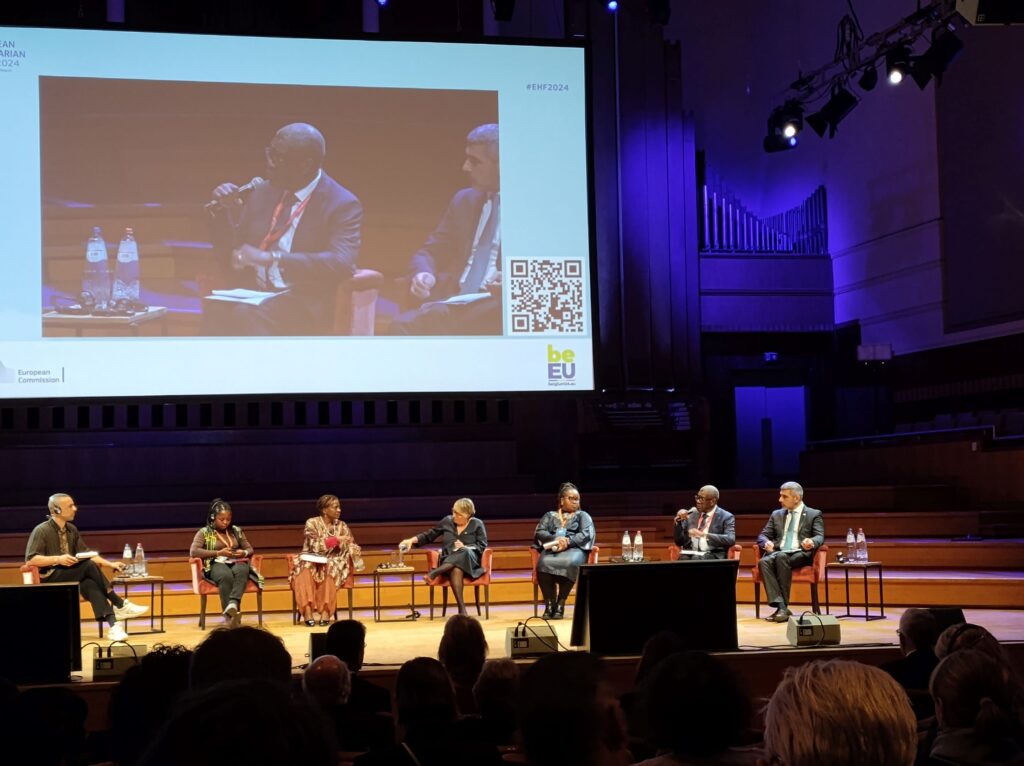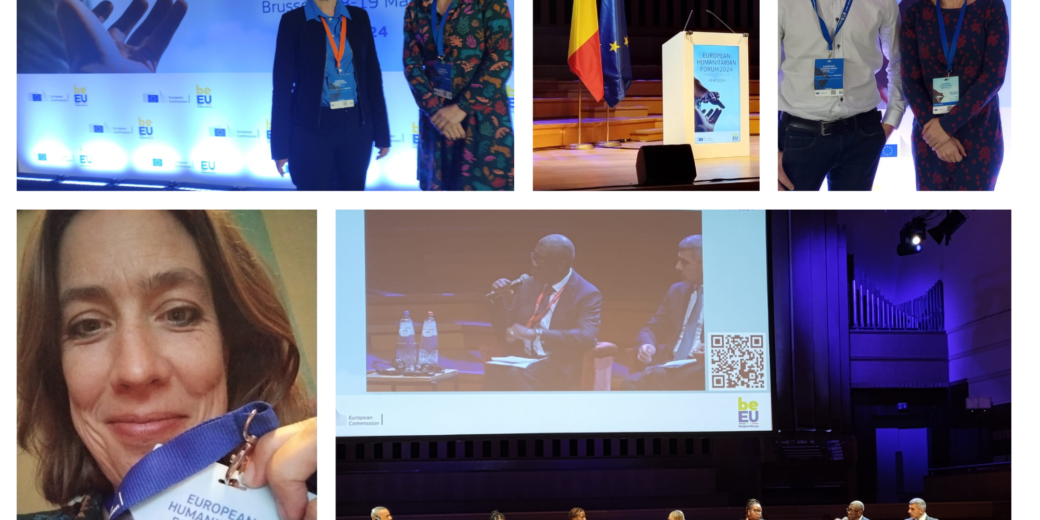Need to Move Beyond Rhetoric Now; My Reflections on the European Humanitarian Forum 2024
After attending the European Humanitarian Forum 2024 in Brussels organized by DG ECHO, I couldn’t help but reflect deeply on the discussions and insights shared during the event. While there were many panels presented as thought-provoking, and similar presented speeches, one recurring theme stood out to me: the need to move beyond all this rhetoric and take concrete action towards creating fair markets and strengthening local sourcing in humanitarian efforts.
A lot of this reminded me about the discussions that took place at the African Logistics Conference 2024 in Dakar (organised by HELP Logistics) last month. Read my reflections and keynote in an earlier post here – the uncomfortable truth of localisation washing.
Embracing Inclusivity and Collaboration into action
Various forum panel discussions delved into critical issues confronting our humanitarian sector, such as the future of aid, current as well as forgotten crises, and, much to my surprise featuring supply chain management. Let’s start with the most astute observation or statement made by Juliet Parker (Director of ALNAP, Active Learning Network for Accountability and Performance in humanitarian action). She was asked about her vision about the future of humanitarian aid in let’s say 2050. She could not be more acurate and right in her response: the question should actually have been about the future of the humanitarian system. The collective responsibility of creating a space for a broader range of actors to operate. Underscoring the importance of fostering inclusivity and collaboration and, most importantly, our localisation and operationalisation of our Grand Bargain vision.
We all are responsible, and starting at this Forum, to not talk about this, but to get into action; creating an environment conducive to the participation of a diverse array of stakeholders, we can enhance the effectiveness and sustainability of humanitarian efforts.
Urgency of Shifting Priorities
All of us in Humanitarian Logistics, trying to make an argument, to get Humanitarian Logistics, Supply Chain or Procurement into the board rooms or expert fora, use the statistics from academia like Stumpf et all 2023, and Moshtari et all 2022. Over 60 to 80% of our humanitarian budgets are spend in our humanitarian supply chains. Making a strong argument for more attention to Supply Chains and Logistics. However this shift should not result in more management, but rather focus on how to increase it’s efficiency and effectiveness (which are not the same). Jagan Chapagain (Secretary General at International Federation of Red Cross and Red Crescent Societies – IFRC) was the first with a real though-provoking statement. “this is not a statistic to be proud of […] Since it’s still mainly goods […] a massive movement of goods from the global north to the global South […] a reality we have to work with but a real need to shift this”.
I can’t agree more with Mr Chapagain, while it’s essential to acknowledge the reality of global supply chains, there’s a pressing need to shift towards prioritising local production and sourcing as I stated in various other blogs posts in the past (see for example here). Ted Chaiban and Gyöngyi Kovács reiterated the importance of discussing Supply Chains in the board room, and about building on existing initiatives and integrating local perspectives into decision-making processes. Again a lot of we should and we should aim for. I am waiting for action to actually build on existing initiatives, not re-inventing wheels for project funding. When and how to move beyond the rhetoric and get this into action?
From Aspirations at the European Humanitarian Forum to Action
Throughout the forum, there was a recurring sentiment of “we should, we could, we should aim,” echoing aspirations without clear plans for implementation. As Ebele Okobi (CEO of the New Humanitarian) poignantly questioned during the panel she moderated: “We need to talk, but with whom, when and about what?” It’s evident that meaningful action requires more than just dialogue—it demands concrete strategies and timelines for execution.
Call to Action?

The presence of influential figures like Queen Mathilde of Belgium and Dr. Denis Mukwege were powerful reminders of the impact of humanitarian work on the ground. Especially during the plenary session The hidden cost of conflict: addressing sexual violence in the Democratic Republic of Congo (click here to rewatch this session).
Dr. Mukwege’s impassioned advocacy for empowering women in conflict zones resonated deeply with my own experiences in the Democratic Republic of Congo (see more about this in my earlier post on LinkedIn here). However, it was Rebecca Kabuo‘s poignant statement that left the most lasting impression. Her call to action challenged us to move beyond rhetoric and start implementing the solutions we know are necessary. The existence of local agencies and grassroots initiatives like the GOMA ACTIF collective highlights the potential for tangible change at the community level (see more about their work in this article in the New Humanitarian:‘We try to set examples’: Meet the local activists feeding DR Congo’s war-displaced )
My Conclusions after the European Humanitarian Forum 2024
As we reflect on the discussions and insights shared at the European Humanitarian Forum 2024, let us not dwell solely on aspirations but commit to translating words into action. The time for meaningful change is now, and it begins with each of us taking proactive steps towards building fairer, more sustainable humanitarian systems. Practically? Let’s finally commit to strengthen our local sourcing, truly strengthen economies, and stop the massive movement of goods. Did it ever occur to anyone that maybe pooled procurement of re-usable menstrual hygiene pads might financially increase the efficiency and effectiveness of the International humanitarian actor? But it actually, time and again, destroys local businesses when distributed. There is a real business case for this item; on the African continent, many female entrepreneurs have set up businesses creating those. But set out of business as soon as the humanitarian circus arrives. Yes, on paper, pooled procurement was more efficient and effective when solely looking at the spending, but not if we start to look more holistically and responsibly. When we are serious about Do-No-Harm, about the Grand Bargain and localisation, we need to focus on our local sourcing and tactical procurement!
Note, an earlier version of my reflections where posted on LinkedIn, see here
